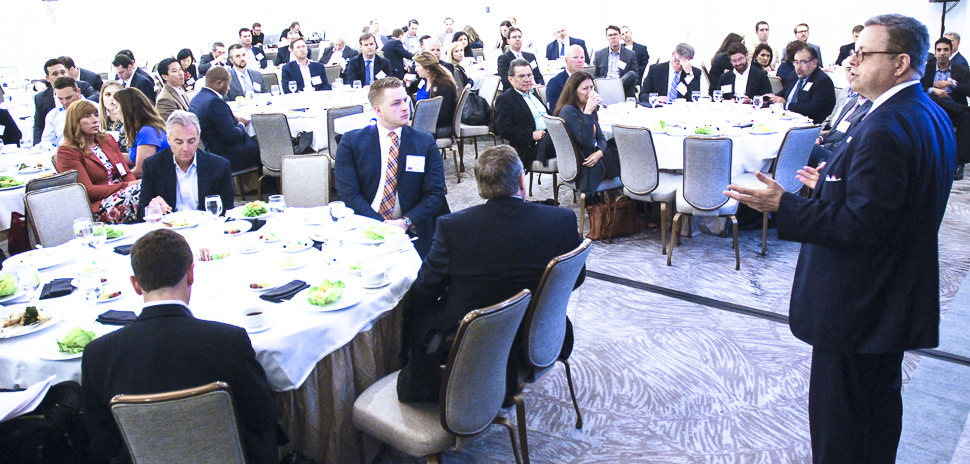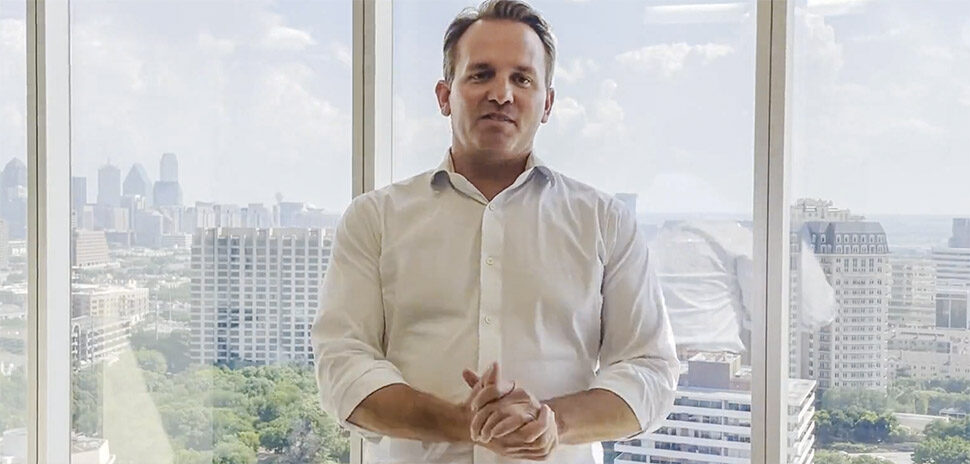If the current U.S. business cycle was a baseball game, are we in the first inning or the bottom of the ninth waiting for the “closer” to get the final out?
According to Jeff Korzenik, chief investment strategist at Fifth Third Bank, a large regional bank in the Midwest and Southeast, the game still has more double plays and home runs to play out.
He told attendees at the Healthcare Dealmakers Conference last week that the nation’s economy is moving forward and still has room to grow.
A key to that trend? A falling unemployment rate.
“What has changed is that we are back at the levels of unemployment and underemployment roughly to where we were before the ’08-’09 recession, and that’s a big change,” Korzenik said.
“This means that the U.S. economy is in the seventh inning, we’ve got a couple of innings to go, and then we start to plant the seeds to the eventual end of this business cycle.”
Jeff Korzenik
“This means that the U.S. economy is in the seventh inning, we’ve got a couple of innings to go, and then we start to plant the seeds to the eventual end of this business cycle,” he said.
A business cycle is the fluctuation in activity that an economy experiences over a period of time, often in terms of periods of expansion or a recession.
But while this business cycle is in play, the nation is seeing benefits.
“The period before that ends, however, can actually be quite good,” he said. “The end of most business cycles comes when you start running out of capacity … either the capacity of the industrial economy or, quite particularly, the capacity of the labor force.”
He said now that the nation is “at low levels of unemployment and underemployment, we are starting to see wage inflation grow in a tight labor market today, and as wage inflation grows, it eventually spreads into the rest of the economy.”
Korzenik said that wage inflation eventually will spread into general price inflation.
“When you have general price inflation, the Fed has to step in, raise interest rates, and that’s how you end a business cycle,” he said.
As you get to that point, things can change — the existing labor force of about 150 million people are getting higher pay, and they tend to spend it.
KORZENIK ON POLITICS AND THE ECONOMY
Korzenik said the economic policy of the new administration will take time to play out, as well.
“Our tendency is believe that like previous administrations that have been under political duress, they tend to focus on policy, and the Republican-led Congress, which is up for re-election next year, is under greater urgency to come up with concrete results,” he said.
There are three priorities for the economy, Korzenik said — deregulation, tax reform, and some type of fiscal stimulus.
“We always place deregulation at the top because we think it’s the most important, and has the greatest short-term boost to economic growth,” he said.
Deregulation also is the most-achievable because a lot of deregulation can be accomplished by an executive act and does not need a “legislative fix,” a bill passed by Congress.
Although second on his list, Korzenik also emphasized the importance of tax reform to the nation’s economic growth.
“Tax reform would be very important because it tends to play out over a long time period,” he said. “We do think it would be important to get tax reform.”
“We believe economists underrate the importance of deregulation and underestimate its ability to spur economic growth …”
Jeff Korzenik
Korzenik said the nation has a “terrible, antiquated corporate tax policy” that is not competitive in the rest of the world.
“There’s a lot of work to be done there, and we don’t know if the administration can get it done yet,” he said.
Korzenik placed the lowest grade on stimulus and infrastructure, mostly because of labor force.
“There is not a construction site in the United States today that is not begging for workers,” he said.
“Even if you get the construction spending authorized, even if you get the right project in place, your ultimately going to take workers off of private-sector projects to put them into a public-sector project,” he said.
Still, Korzenik said that it is deregulation that will lead the charge for business growth in the country.
“We believe economists underrate the importance of deregulation and underestimate its ability to spur economic growth, in part because it’s really hard to model if you have virtually no experience with deregulation,” he said.
Korzenik said he believes the Fed will raise interest rates, but it will be reluctant to do so because when you get wage inflation, good things tend to happen.
Read more about Healthcare Dealmakers
Healthcare Dealmakers: Money & Medicine Come Together































